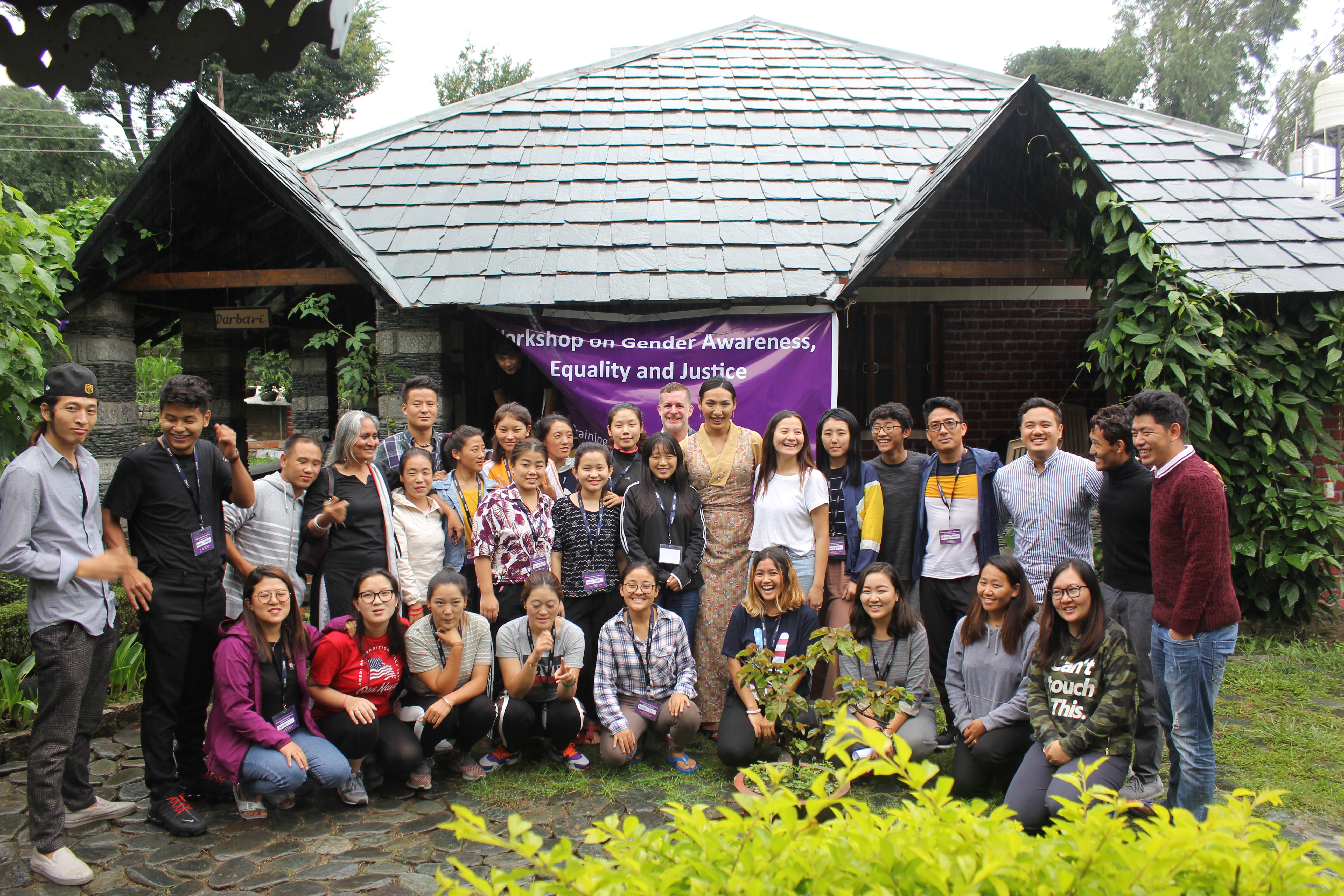
The Tibetan Centre for Human Rights and Democracy in conjunction with Jagori Rural Charitable Trust carried out a 7-day residential workshop on ‘Gender Awareness, Equality and Justice’ at the Training and Research Academy in Sidhbari, Himachal Pradesh.
Held from 21 to 27 July, a total of 30 participants including Tibetan students from different universities and representatives of local Tibetan NGOs took part. The weeklong workshop covered different topics on the construction of gender, patriarchy, masculinity, femininity, feminism, youth & relationship with the body, sexuality, prevalence of different kinds of violence and redressal mechanisms in place.
Kamla Bhasin, an Indian developmental feminist activist, poet, author and social scientist, talked about the construction of gender and patriarchy. Kamla began by emphasising that gender is not biological like female and male. Gender is the societal definition of how a boy/girl or women/men should be. Whereas under the patriarchal system, both men and women suffer. She encouraged the participants that patriarchy can be fought only when men and women work together.
During the workshop, participants also learned about knowing and making relationship with one’s body which was led by Abha Bhaiya, founder of Jagori Grameen and Nimisha Desai, a gender trainer and the founder-director of Olakh.
In addition, Khadijah Faruqui led a session on the legal provisions in various national and international law for women including the Convention on the Elimination of all Forms of Discrimination Against Women (CEDAW).
TCHRD invited Tenzin Mariko, a Tibetan transgender living in exile in India for an interactive session with the participants and to hear her story of coming out as a member of LGBTQI and the challenges she had to go through in the Tibetan community. Mariko encouraged the participants to embrace their true self and that gender can be fluid and challenged as well.
Participants also had the opportunity to visit three different local villages as part of an educational field visit to learn about how grassroots leadership in local communities are breaking gender stereotypes and fighting for social change. For instance, one group visited a local village to learn about organic farming, another observed an alternative justice system called ‘Women’s Court’ (Nari Adalat) in session and the last group interacted with the members of a women’s leadership program.
